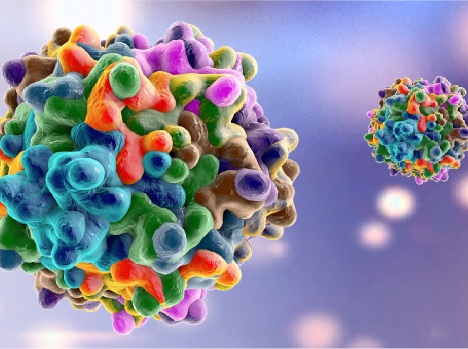At the ASGCT‘s 27th Annual Meeting in Baltimore this year, groundbreaking trials showcased the forefront of gene therapy research. Presentations highlighted innovative approaches in gene therapy, including targeted cell and gene therapies, advancements in AAV gene therapy, and the latest findings in cell therapy. With a focus on cutting-edge treatments and promising outcomes, these trials underscore the transformative potential of gene and cell therapy in addressing diverse medical challenges.
Cell Therapy and Cell-Based Gene Therapy
Gene Therapy for Adult and Pediatric Patients with Severe Pyruvate Kinase Deficiency: Results from a Global Study of RP-L301
Pyruvate kinase deficiency (PKD) is a rare hemolytic anemia caused by PKLR gene mutations, characterized by manifestations such as anemia, splenomegaly, and iron overload, which may be life-threatening. Here, the progress of a Phase 1 trial (NCT04105166) evaluating RP-L301, a lentiviral-mediated gene therapy, in patients with severe PKD. The therapy involves targeting hematopoietic stem and progenitor cells (HSPCs) and has shown promising results in terms of genetic correction, sustained hemoglobin normalization, and reduced transfusion dependence. Both adult and pediatric patients demonstrated improved quality of life and hemolysis parameters, with no serious adverse events attributed to the treatment. These findings suggest that RP-L301 could be a potential treatment option for severe PKD patients, including those who have not benefited from current therapies.
Interim Analysis of CD19 CAR-Expressing Allogeneic NKT Cells in B Cell Malignancies
While T cells with CD19-specific CARs show promising complete response rates in B cell malignancies, the production of autologous cell products is expensive, time-consuming, and exhibits variability in potency and toxicity. In the ANCHOR trial (NCT00840853), allogeneic CD19-specific CAR-NKTs demonstrated safety and efficacy in patients with relapsed/refractory B cell non-Hodgkin’s lymphoma (NHL) and relapsed acute B lymphoblastic leukemia (ALL). No dose-limiting toxicities were observed in patients across three dose levels, with some achieving partial or complete responses, indicating the potential of CAR-NKTs as an “off-the-shelf” cancer immunotherapy option. Initial results show promising objective responses, including partial and complete responses, indicating the potential of CAR-NKTs as a novel cancer treatment approach.
Tumor Microenvironment Reprogramming in Glioblastoma via Genetically-Engineered Hematopoietic Stem Cell Transplantation
The study, known as NCT03866109, investigates the efficacy of Temferon, a novel gene therapy, in patients with glioblastoma multiforme (GBM). Temferon aims to reprogram the tumor microenvironment (TME) by inducing local release of alpha-interferon (IFNα) from tumor-infiltrating macrophages. Preliminary findings indicate successful engraftment of genetically engineered cells and improved survival rates, suggesting Temferon’s potential as a promising treatment strategy for GBM. Additionally, Temferon treatment leads to the recruitment of immune cells, upregulation of IFNα-induced gene expression, and reprogramming of myeloid cell populations within the TME, fostering anti-tumor immunity.
Safety and Effectiveness of AB-1002 Gene Therapy in Advanced Heart Failure: Ongoing Phase 1 Trial Results
This study investigates AB-1002 gene therapy in patients with non-ischemic heart failure (HF). Using a novel AAV2i8 capsid, the therapy delivered a constitutively active I-1c protein to cardiac tissue via intracoronary infusion. Results from the Phase 1 trial show promising improvements in cardiac function and quality of life measures, supported by high myocardial transduction efficiency and favorable safety profiles. These findings pave the way for further evaluation of AB-1002 in a larger Phase 2 trial, GenePHIT, currently underway.
In conclusion, these studies presented are just some of the highlights from the ASGCT annual conference in Baltimore, showcasing significant advancements in cell therapy and gene therapy across various medical conditions. RP-L301 offers promise for severe pyruvate kinase deficiency, while CAR-NKT cell therapy shows potential in treating B cell malignancies. Temferon demonstrates encouraging results in glioblastoma treatment, and AB-1002 gene therapy presents promising outcomes for advanced heart failure. These findings underscore the ongoing progress and potential of innovative therapies to address unmet medical needs. ASGCT 202
https://www.geneonline.com/advancing-health-asgcts-clinical-trials-spotlight-on-cell-therapy-and-cell-based-gene-therapy/

Check out our AAV capsid engineering service to expedite your gene therapy research
PackGene Biotech is a world-leading CRO and CDMO, excelling in AAV vectors, mRNA, plasmid DNA, and lentiviral vector solutions. Our comprehensive offerings span from vector design and construction to AAV, lentivirus, and mRNA services. With a sharp focus on early-stage drug discovery, preclinical development, and cell and gene therapy trials, we deliver cost-effective, dependable, and scalable production solutions. Leveraging our groundbreaking π-alpha 293 AAV high-yield platform, we amplify AAV production by up to 10-fold, yielding up to 1e+17vg per batch to meet diverse commercial and clinical project needs. Moreover, our tailored mRNA and LNP products and services cater to every stage of drug and vaccine development, from research to GMP production, providing a seamless, end-to-end solution.
Related News
Sangamo Therapeutics Secures Accelerated Approval Pathway for Gene Therapy in Fabry Disease
Sangamo Therapeutics has announced a major advancement in its gene therapy program for Fabry disease, as the U.S. FDA has provided a clear pathway for Accelerated Approval. This decision could potentially speed up approval timelines by three years, with a Biologics...
[2024/10/18] Gene and Cell Therapy- weekly digest from PackGene
FeaturedNewsArticlesPackGene's NewsletterReceive the latest news and insights to your inbox.About PackGenePackGene Biotech is a world-leading CRO and CDMO, excelling in AAV vectors, mRNA, plasmid DNA, and lentiviral vector solutions. Our comprehensive offerings span...
GSK sues Moderna over mRNA vaccine patents, seeks ‘reasonable royalty’
GSK on Tuesday unveiled a lawsuit filed against Moderna in Delaware federal court, alleging that its patented inventions provide the “foundation” for Moderna’s mRNA vaccine portfolio. GSK said it’s looking to recover “a reasonable royalty” for Moderna’s tens of...
Gene Therapy Automatically Converts Omega-6 to Omega-3 Fatty Acids in the Body
Shriners Children's Develops New Technology to Prevent Childhood Obesity ST. LOUIS, Oct. 16, 2024 /PRNewswire/ -- According to the Centers for Disease Control, nearly 20% of children and teens are considered obese. Research shows it can have a dramatic impact on a...
Related Services

Plasmids GMP Services

AAV GMP Services


